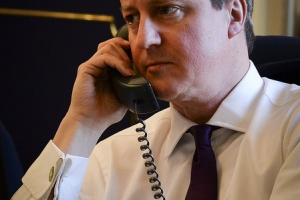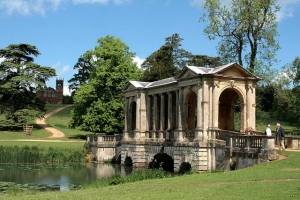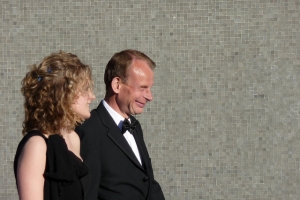Support migrant centric journalism today and donate

A small, peaceful protest was held on Sunday 18th November 2012 in the town of Boston in the county of Lincolnshire, England, against the high level of immigration from eastern Europe. About 300 people attended the event. Boston had a population of 35,000 at the time of the 2001 census. Since then, it is estimated that some 9,000 eastern Europeans have moved into the town, increasing the population and, local people say, putting pressure on local infrastructure and services. They complain that there are no longer jobs for many native English people.
The protest was organised by Dean Everitt, a forklift driver. Mr Everitt was one of several people who addressed the crowd. Mr Everitt said, 'The number of people who have turned up today shows that Boston has got a problem with migration.' Another speaker Bob McCauley said that he wanted to 'send a message to the government that we have had enough.' And Chris Pain of the United Kingdom Independence Party said 'We need proper jobs for local people.'
There were fears that the protest might attract violent extremists to the town. However, these proved unfounded. Speaking to the BBC in October, Beata Polanowska, the editor of a newspaper for Poles living in the area said "I have never had the impression that the feelings towards eastern European migrants were as strong as that, and said that she was worried that the protest might be used by 'right-wing organisations' and generate racial tension.
Protesters carried placards bearing such messages as 'Free us from the shackles of Europe' and 'Get Back Our Country'. They were keen to stress that they had no argument with immigrant workers but with the immigration policy of various governments that allowed workers from eastern Europe to settle in the UK.
The UK is a member of the European Union. The EU guarantees the free movement of workers between all countries of the EU. Countries are entitled to place 'transitional controls' on the movement of workers from countries who have just joined the EU. In 2004, eleven countries joined the EU, most of them were former communist countries in eastern Europe where the standard of living was much lower than in the west.
In 2004, most EU governments placed transitional controls on workers from these countries settling in their countries. The UK, Ireland and Sweden did not. The UK's Labour government said in 2004 that it thought that between 5,000 and 13,000 people would travel from the accession countries to the UK each year. The then Trade Secretary Patricia Hewitt said that claims that hundreds of thousands of people would come were 'nonsense'. In fact, it is estimated that as many as 2 million people may have come.
Mr Everitt told the BBC 'We had a good turnout of people, the right people, and we've put our point across peacefully. I hope national government are going to know what we've done. We'll take it to Westminster until we get this issue sorted out. We're not right wing thugs. We're not racists. We're just everyday people that are fed up and sick to the back teeth of migration. I work with Polish people and even they've said there are far too many now.'
Martins Zagers, another eastern European migrant living in Boston, said that some English people were not prepared to work as hard as the eastern European migrants. Mr Zagers told the BBC 'I work in a factory where there are only Polish, Latvians and Lithuanians. From my side, I am working hard and I will not take benefits. I am too proud to take benefits.'
Mr Everitt said that he was organising another demonstration in Spalding, another Lincolnshire town with a high number of eastern European residents, in the near future.
Workpermit.com is a specialist visa consultancy with nearly twenty-five years of experience dealing with visa applications. We are OISC registered. We can help with a wide range of visa applications to the UK or your country of choice. Please feel free to contact us for further details.





















